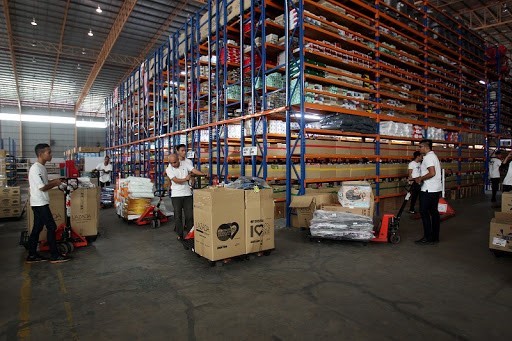
Image credit: Property Lifestyle News in Malaysia
The demand for warehouses and storage facilities is expected to increase as a result of the recently signed Regional Comprehensive Economic Partnership (RCEP) agreement, which would largely benefit the e-commerce industry.
CCO & Associates (KL) Sdn Bhd ED Chan Wai Seen said the market prospect for warehouses is better compared to office spaces.
“Demand for warehouses is spurred by increasing online active trading activities. RCEP will also enhance the industrial property sector. RCEP will facilitate cross-border trade, investments and the easing of non-tariff measures among the participating countries which will promote trading activities and foreign direct investment to Malaysia,” he told The Malaysian Reserve (TMR).
He added that requirements for office spaces are expected to decline as more employees may continue to work from home post-Covid-19 and employers will continue to keep operating costs low by reducing the office spaces.
Chan also said many companies have invested in the IT infrastructure to allow employees to work from home during the
Movement Control Order (MCO) and Conditional MCO, encouraged by the tax incentives introduced by the government.
CBRE|WTW group MD Foo Gee Jen said there is an increased demand for micro warehouses to facilitate last-mile delivery.
“The demand for e-commerce is surging now due to the movement restrictions, hence, the need for more warehouses.
“There is also increasing demand for small/micro logistics centres, or warehouses located nearby housing areas for last-mile delivery which could reach the consumers faster,” he said.
He added that the RCEP signing would positively impact demand for warehouses as it would contribute almost 25% of the entire world population to Malaysia’s e-commerce market.
Foo also said demand for office spaces is expected to remain soft as businesses implement cost-cutting measures amid Covid-19 pandemic.
TMR recently reported that small and medium enterprises (SMEs) are expected to benefit from the broader market following the RCEP signing.
SME Association of Malaysia president Datuk Michael Kang said the agreement between the 15 countries could give positive impacts to the SMEs, which are currently struggling due to the Covid-19 pandemic.
“The market for Malaysian SMEs will now grow from a 32 million population to 2.6 billion.
“Local SMEs now have to be progressive and competitive by adapting to the technology,” he told TMR previously.
Being the largest free trade agreement in the world, covering 15 countries with 2.2 billion or nearly a third (29.7%) of the world’s population, RCEP represents US$24.8 billion (RM102.18 billion) or almost a third (28.9%) of the world’s GDP based on World Bank’s 2018 data.
Source: https://themalaysianreserve.com/2020/12/03/e-commerce-driven-demand-for-warehouses-to-increase-post-rcep/

